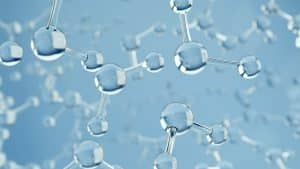The immune system is composed of a network of cells, tissues, and organs that work together like a well-trained army. Many people are constantly harming their immune system without being aware of it. And without a healthy immune system, one can easily open the doors to a myriad of imbalances and illnesses.
Poor Diet
Whether your diet is poor because of food choices, food availability, or even poor digestion, your immune system suffers. The body needs the proper amount of vitamins, minerals, calories, and protein for cells to grow and work properly. Without these, the immune system can grow weak and be less able to find and destroy germs. A diet that is healthy for the immune system should avoid excessive consumption of refined sugars and highly processed foods containing preservatives, pesticides, and chemical additives. Cooking from scratch using organic, fresh, whole foods is a must in order to keep a healthy and stable immune system.
Leaky gut
80% of the function of the healthy human immune system is the bacteria found in the gut. The whole length of our digestive tract is coated with a bacterial layer providing a natural barrier against invaders, undigested food, toxins, and parasites. If this barrier gets damaged, then the immune protection goes down.
The beneficial bacteria protecting the gut wall also work against invasive pathogenic micro-organisms by producing antibiotic-like substances, anti-fungal volatiles, and anti-viral substances. They engage the immune system to respond appropriately to invaders and have a good ability to neutralize toxic substances from our food and environment.
Lack of Sleep
Poor sleep is associated with lower immune system function and reduced numbers of germ-fighting cells.
During sleep, the immune system releases proteins called cytokines. Some cytokines help promote sleep, while others need to increase when you have an infection or inflammation or when you’re under stress. Researchers in a 2012 study found a dramatic difference in immune response in subjects who slept four to six hours per night compared to those who slept seven to nine hours.
Hygiene: Too Much or Too Little
The concept of exposing people to germs at an early age to build immunity is known as the hygiene hypothesis. Medical professionals have suggested that the hygiene hypothesis explains the global increase of allergic and autoimmune diseases in urban settings.
Researchers at Brigham and Women’s Hospital (BWH) have conducted a study (published online in the journal Science on the Science Express Web site on March 22, 2012.), which provides evidence supporting the hygiene hypothesis. The researchers discovered that exposing germ-free mice to microbes during their first weeks of life, but not when exposed later in adult life, led to a normalized immune system and long-lasting prevention of diseases.
While it’s important to get adequate exposure to germs and bacteria early in life, it is just as important to practice proper hygiene as an adult, but for the opposite reason. Good hygiene habits such as brushing your teeth, washing your hands properly before eating, and keeping your hands away from your eyes and nose during cold season can help keep harmful organisms out of your body so that your immune system doesn’t become overwhelmed.
Antibiotics
The use of antibiotics has been well documented to cause serious and long-term, negative health effects especially when overused. Antibiotics destroy beneficial bacteria in the human body, not only in the gut but also in other organs and tissues. They change bacteria, viruses, and fungi from benign to pathogenic, giving them the ability to invade tissues and cause disease. They make bacteria resistant to antibiotics, so the industry has to work on more and more powerful new antibiotics to attack these newly changed bacteria. They have a direct damaging effect on the immune system, making us more vulnerable to infections, which leads to a vicious cycle of more antibiotics and more infections.
There are times when antibiotics are necessary, but avoiding the overuse of antibiotics is important since these eliminate not only harmful bacteria but also the healthy kind. If you must take antibiotics for an infection, taking additional probiotic supplements can help prevent yeast infections and overgrowth of bad bacteria in the digestive system.
Stress
Chronic stress that you experience on a daily basis over a myriad of problems takes a toll on many aspects of your health, including immunity. When you experience continued stress, the adrenal glands release extra cortisol to help your body manage the stress. Elevated cortisol levels decrease the production of healthy prostaglandins, which support healthy immune function.
There is compelling scientific evidence that continued stress causes a measurable decline in the immune system’s ability to fight disease. Stressful periods can determine lower natural killer cell count, sluggish killer T cells, and diminished macrophage activity, which can amplify the immune response.
Vaccines
Vaccines contain ingredients like formaldehyde, mercury, and aluminum, which cause people to avoid vaccination. These components raise concern in many people because of their negative and real effects on the human body. Formaldehyde is considered a highly toxic substance, mercury is known as a neurotoxin, aluminum can have adverse effects on the reproductive system and neurological development. There is also the risk of chronic illnesses such as autoimmune disease and allergies because the body wants to attack the foreign DNA, which is being injected and fused with the host DNA. This can lead to long-term inflammatory issues within the body. These are definitely factors, which can affect one’s innate immunity to disease.
Excessive alcohol
Drinking too much alcohol can reduce the ability of white blood cells to kill germs and produces an overall nutritional deficiency. Physicians have long observed that excessive alcohol consumption can lead not only to liver damage but also to increased illness and death from infectious diseases.
Dehydration
Dehydration weakens the body’s overall immune system and leads to chemical, nutritional, and pH imbalances, which can eventually cause sickness and premature aging. Dehydration can also affect your energy levels, as well as your ability to sleep, which can make you less likely to exercise, another trigger for a weakened immune system.
Lack of Exercise
Studies have shown that exercise boosts your immune system by strengthening the cells in your body that are assigned to attack bacteria. These cells appear to work more slowly in people who do not exercise than in those who do exercise. Your body also produces antibodies during exercise that react to antigens such as bacteria or viruses by hunting them down and destroying them.
At Holtorf Medical Group, our physicians are trained to utilize cutting-edge testing and innovative treatments to improve and support immune health. Contact us today to see how we can help you!


